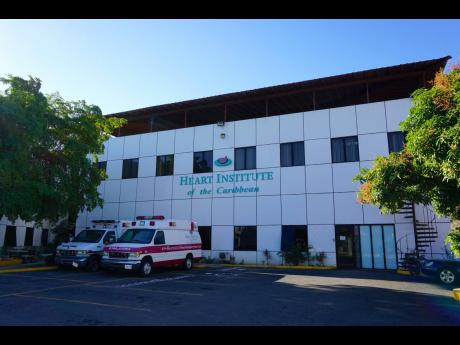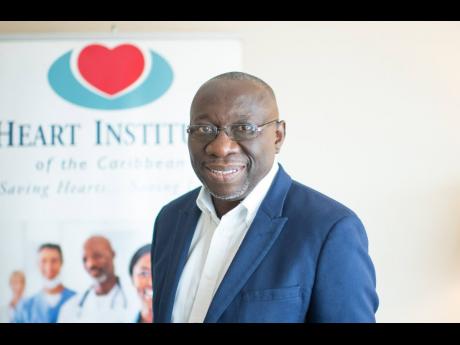HIC Save A Life Programme – A bold initiative against cardiovascular disease
SOMETIMES IT is difficult to prioritise heart health because the threat does not feel tangible or immediate, and the prevention efforts can mean overhauling your lifestyle. Heart-healthy living involves understanding your risk, making healthy choices, and taking steps to reduce your chances of getting heart disease, including coronary heart disease, the most common type.
By taking preventive measures, you can lower your risk of developing heart disease that could lead to a heart attack. You can also improve your overall health and well-being.
Driven by demographic changes, rising prevalence of risk factors and other promoters, cardiovascular disease (CVD) prevalence has risen significantly over the past 30 years, from 271 million in 1990 to 523 million in 2019. Cardiovascular disease deaths have increased from 12.1 million in 1990 to 18.5 million in 2019.
About one-third of deaths from CVD are premature deaths affecting individuals between the ages of 30 and 70. Compared to the rest of the world, a disproportionate rise in CVD has been noted in low- and middle-income countries like Jamaica.
According to Dr Ernest Madu, founder and consultant cardiologist at the Heart Institute of the Caribbean (HIC), for patients with heart attack or other acute heart conditions, comprehensive evaluation must be done urgently.
“Considering the economic difficulties and logistical challenges many individuals with heart attacks or other acute heart conditions face in accessing lifesaving treatment, we must design proactive mechanisms for prompt response to acute and critical cardiovascular events that often lead to catastrophic outcomes in the absence of timely and proper intervention,” Dr Madu said.
“It is time to put an end to the unnecessary deaths and disabilities that result from a delayed and inappropriate response to cardiovascular disease and its complications. Delays in treatment can be very costly in money and life, but early intervention saves lives,” he added.
According to Dr Madu, the choice of provider and facility for evaluating and treating your chest pain or cardiac complaint must be intentional. Any delays, he said, could lead to death or other catastrophic complications, while urgent and appropriate response will save lives and avert significant complications.
“It may be the most critical decision that will determine the outcome of your care. Patients with chest pain or acute cardiac complaints should seek care from competent healthcare professionals, preferably in those facilities with adequate personnel and infrastructure for heart care and with a sense of urgency in addressing cardiovascular complaints,” Dr Madu said.
Affordability, he said, remains a major barrier to access to timely and appropriate cardiovascular care delivery. “Suppose we accept the universal doctrine that all lives are sacred and should be preserved at all costs. In that case, we must evolve mechanisms to align with this doctrine despite the cost and logistical challenges that impede access to care,” he said.
About 7,500 heart attacks occur each year in Jamaica, and many will not survive unless timely intervention is initiated. The public hospitals receive many heart attack patients but most of these facilities are limited by lack of proper infrastructure, resources, or human capital to respond effectively to heart attack patients.
“Current healthcare financing mechanisms in Jamaica pose a significant barrier to access and therefore does not offer adequate protection for many patients especially at times of cardiovascular emergencies,” Dr Madu said.
The HIC, he said, has embarked on a bold initiative, themed, ‘HIC Save A Life Programme’ to fill this gap and to ensure that most patients with acute cardiovascular emergencies have timely access to appropriate care.
“The HIC Save a Life Programme is sponsored by the HIC Foundation to assist patients with acute coronary syndromes including heart attack and unstable chest pain (angina) who urgently need life-saving treatment. This comprehensive heart care package is offered at a low all-inclusive cost to ensure that patients with heart attacks and acute coronary syndromes get immediate access and timely intervention to save lives and avert complications,” Dr Madu said.
The package includes free ambulance pick-up from Kingston and St Andrew, Portmore and Spanish Town, initial cardiology consultation, electrocardiogram, continuous cardiac monitoring, cardiac catheterisation and coronary angiogram, coronary angioplasty with drug-eluting stent, all surgeon’s and technical fees, all operating room charges, all nursing and technical fees, all surgical consumables and medications, two to three days admission in the ICU or telemetry at no cost.
In addition, all patient meals and medications while admitted, and free unlimited cardiology consultations for 60 days after discharge.
Dr Madu said he is encouraging other private sector providers of cardiovascular care to join their efforts by creating more affordable solutions for acute heart care. Working collaboratively, he said they can look forward to a time when every patient in Jamaica with a heart attack can get appropriate and timely intervention without the limitations of cost.
To learn more or to take advantage of this offer, individuals can call the Heart Institute of the Caribbean at 876-906-2105 to 2108 or email: info@caribbeanheart.com. Visit www.caribbeanheart.com for more information.


